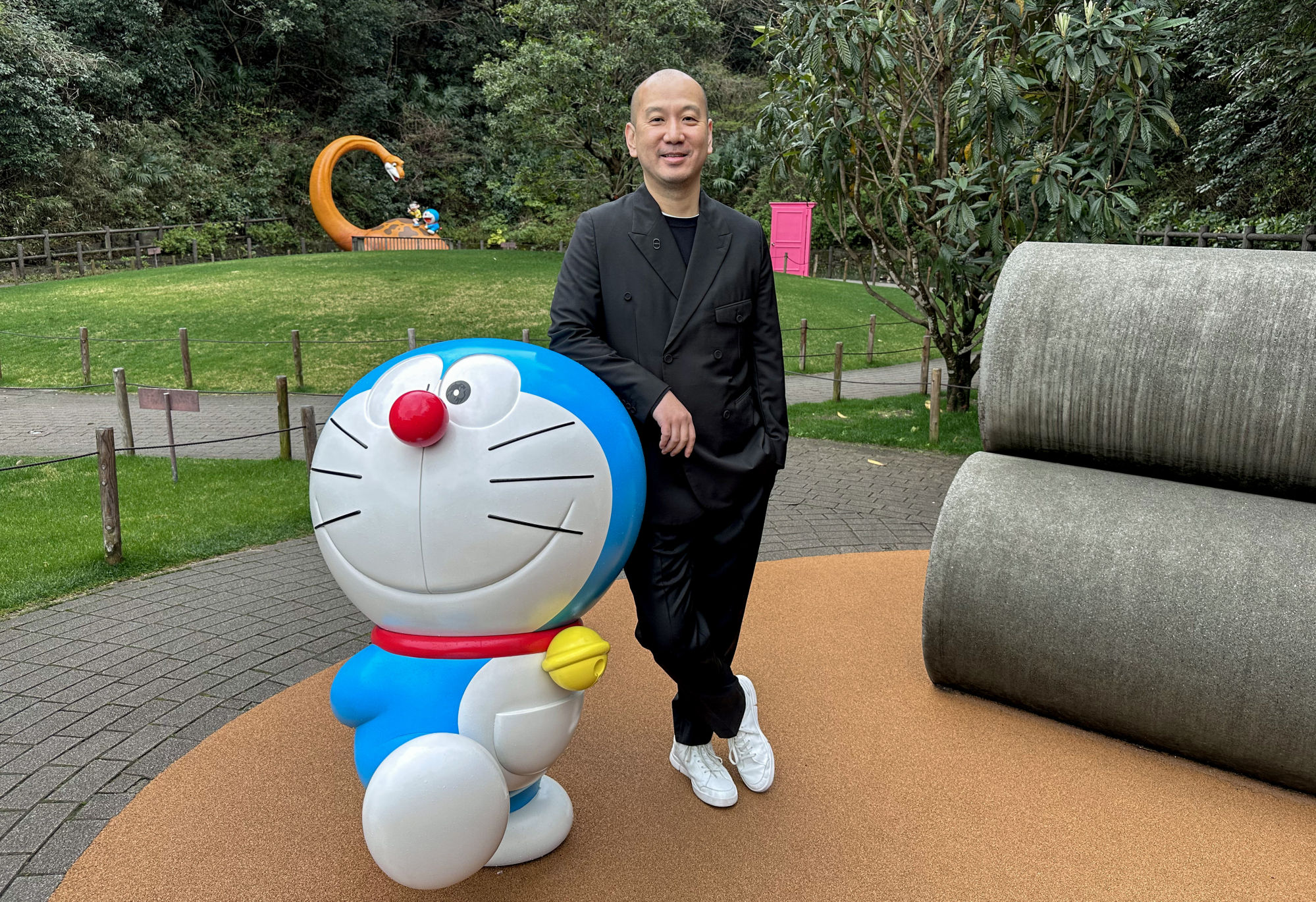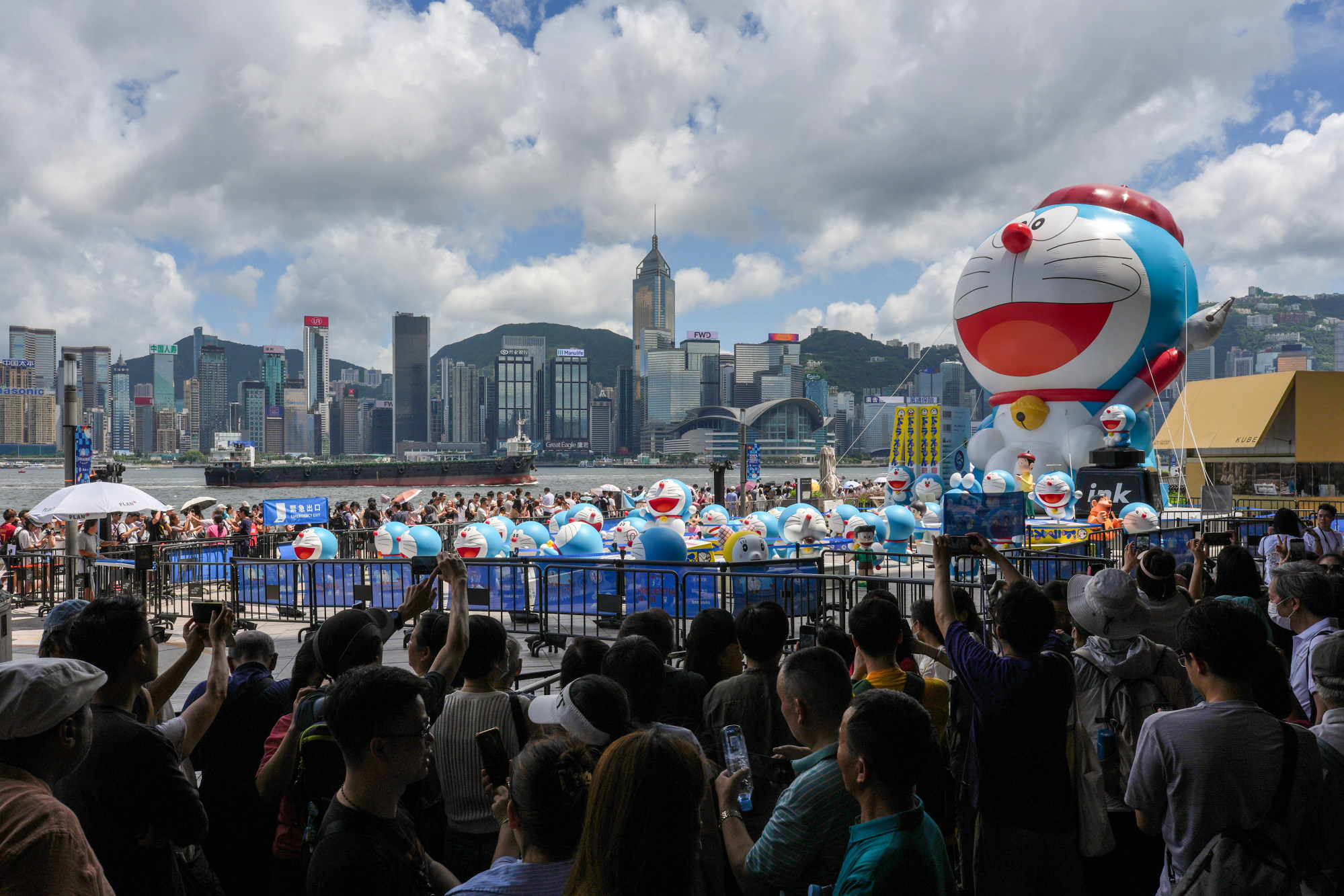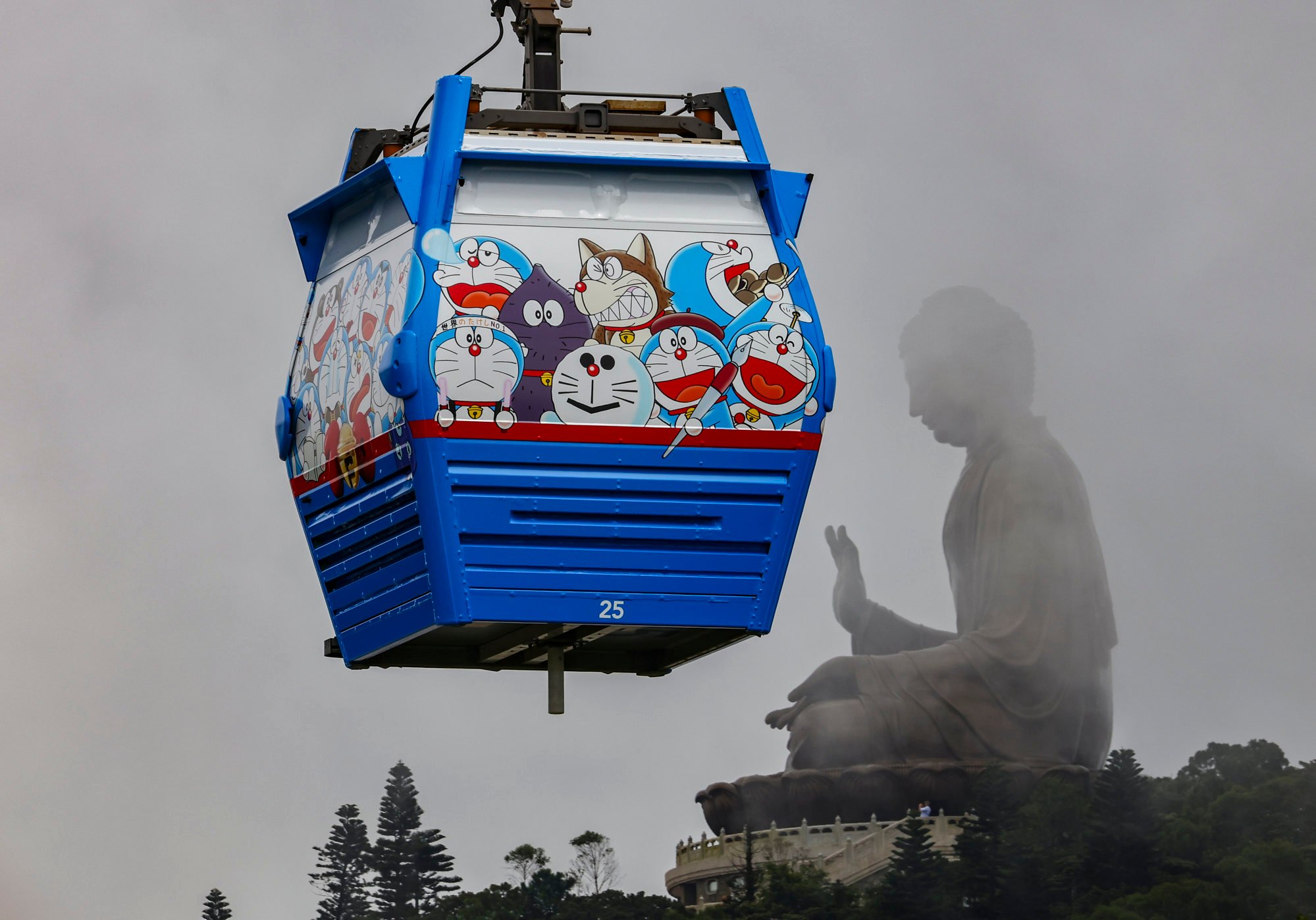The organiser of a Hong Kong exhibition celebrating popular manga character Doraemon has hailed the event as a rare example of cross-sector cultural collaboration, saying it not only attracted 5 million people but also proved profitable.
Lam Shu-kam, founder of design studio AllRightsReserved, told the Post that industries needed to think differently about how to collaborate and put on major shows to get behind a government push into large-scale events.
“A fundamental shift in mindset across sectors is needed to bridge the gaps among them to unleash the city’s full creative potential because authorities are pushing for a culture-backed mega events economy,” he said on Sunday, as the show came to a close.
Do you have questions about the biggest topics and trends from around the world? Get the answers with SCMP Knowledge, our new platform of curated content with explainers, FAQs, analyses and infographics brought to you by our award-winning team.
The month-long “100% Doraemon & Friends Tour” was organised by Lam’s team in close collaboration with Fujiko Pro, the company behind the franchise.
The project involved wide-ranging tie-ups with rail operator the MTR Corporation, the Ngong Ping 360 cable cars on Lantau and K11 Musea Mall in Tsim Sha Tsui, among others.
From June, the much-loved blue robot cat popped up in various forms at Sun Yat Sen Memorial Park in Sai Ying Pun and Ngong Ping, while MTR trains and the Lantau cable cars were covered with colourful stickers.
A pair of drone shows in Victoria Harbour also provided colourful high-points for the event.
A themed culinary experience and souvenirs were also on offer at K11 Musea, with promotional campaigns being run on the city’s train system, often far removed from the exhibition locations.
Lam, who is also the mastermind behind two giant inflatable rubber ducks that were set up in Victoria Harbour in June last year, said the revenue associated with the Doraemon project reached “nine figures” in Hong Kong dollars.
The amount included revenue for various participating businesses.
The organiser said on Sunday the show attracted 5 million people in the past four weeks.
Drinks and retail sales at K11 Musea, meanwhile, jumped nearly 30 per cent year on year, according to its operator.
The part of the show held in collaboration with K11 Musea included a ticketed zone inside the shopping centre and free access areas along the Avenue of Stars.

Tickets, souvenirs, copyrights and commercial sponsorships were all part of the strategy to make the show possible without applying for the government’s mega event fund, according to Lam.
“We sold about 100,000 tickets. This shocked many,” he said.
Tickets ranged between HK$120 (US$15.4) and HK$320 per person.
“At the end of the day, it’s about whether it’s commercially viable. It can be done if it is,” he said. “Mega events are the results. The driver behind them is culture.”
For the events to be successful, the hardware – such as venues and malls – and the software – the culture sector professionals – needed to work together, he added.
“There is not enough synergy between existing hardware and the culture industry. It’s about the capacity in which you can galvanise your software as a city. Hong Kong needs people who can create this industry and market,” Lam said.

He added that those who had the hardware, such as authorities and developers, needed to understand that curating a pop-up event went beyond a landlord-tenant relationship and was about a cultural product in itself.
Creative sector professionals should also be confident that culture could be commercially viable, he said, while the industry could find ways to work other than through commissions that might not end up making a profit.
Lam said he believed the Doraemon exhibition could serve as a case study for all stakeholders as to how the city could advance its cultural industry.
“Hong Kong is going through a transitional period where the shift is slowly happening,” he said.
Hong Kong’s push for a mega event economy has also been drawn into controversy, with calls for more transparency over how dedicated funds are spent and a review system to be put in place over the allocation of government money.
The Culture, Sports and Tourism Bureau said the Doraemon event was a good showcase of a partnership between private groups and the government, with the authorities involved in various capacities such as crowd control during drone shows.

Lam said those allocating resources must be discerning to make the mega events economy a success, with one criterion for selecting organisers being their track record.
Education was also needed so that industries that might at first glance seem distant from the culture industry – such as transport and restaurants – could in fact play a part.
“Everyone can be part of Hong Kong’s cultural landscape,” he said.
The Doraemon show is part of a world tour, with the next destination yet to be announced.
More from South China Morning Post:
- Hong Kong Doraemon show the cat’s whiskers as cartoon hero attracts 5 million people
- Doraemon on board: Hong Kong’s high-speed rail gets manga makeover
For the latest news from the South China Morning Post download our mobile app. Copyright 2024.





